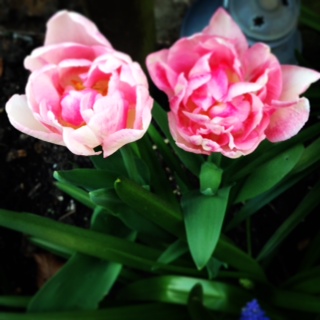This Forum will close on Wednesday 27 March, 2024. Please refer to the announcement on the Discussions page for further detail.
Bees
 Pinkypoo
Posts: 32
Pinkypoo
Posts: 32
Hello All
Over the last few weeks I have notcied a lot of dead bees around some of my plants. I was just wondering if this is normal!?
They sort of go dopey and then I find them dead the next day. I have no idea why this is happening I dont treat the plants with anything and they are just every day garden plants. Bit worried!
Thank you!
0
Posts
They may well be male bees that have mated. Male bees die after mating.
they may be victims of the wet weather or they could be the bees that went thru the winter in the hive and they're dying of old age as the new bees hatch.
Oh that is sad but I guess that is how the bee world works. Thank you all for your help!
They may also be sufferers of the deadly insecticides containing neonicotinoids that although are banned in farming in some parts of Europe, are still used in the UK. It is a massive problem for our bees. I've added a link in case anyone is interested...
http://www.soilassociation.org/wildlife/bees/beeresearch
I've read not to feed diluted honey as this could spread disease.
Glad you asked this as I have noticed the same thing in my garden.
I found a dead bee this morning in my garden - it appears to have succumbed part way through feasting on a pollen laiden plant!
I went on a bee forum as i had a nest at the side of my pond, was told they eject dead and dying bees out the nest, i have found four in my pond so far, but the really sad thing was they told me most of them will die out in the wider environment as they are worn out and cant make it home..
Hi Pinkypoo,
When you started this thread were you talking about honey bees or bumble bees?
Clarington - sometimes when you see a dead bee on a flower its because it has been ambushed and killed by a crab spider, or other predatory insects like assassin bugs. These are well camouflaged to lay in wait on flowers. Crab spiders can be found in pure white, bright yellow, or lime green morphs, enabling them to wait motionless on the same coloured parts of the flower to embrace visiting insects in a kiss of death.